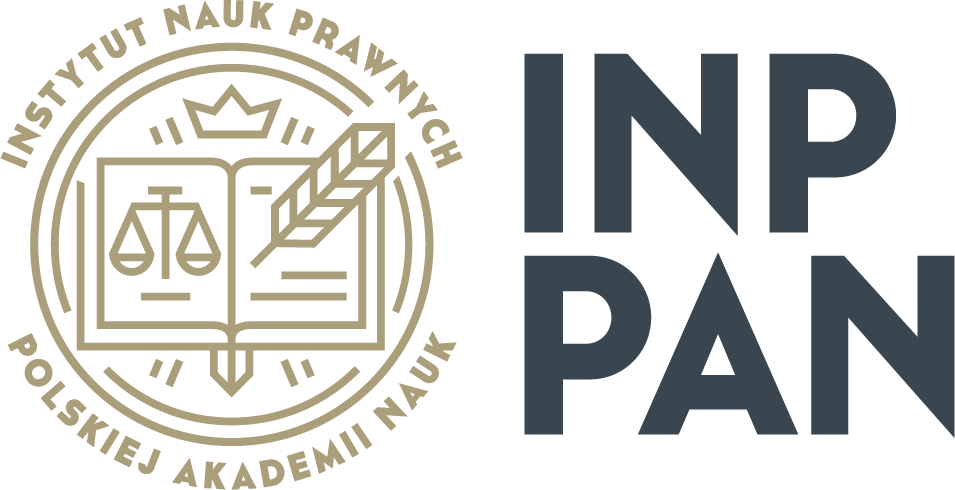Constitutional challenges in the algorithmic society
Saved in:
| Corporate Author: | |
|---|---|
| Other Authors: | , , , , , |
| Language: | English |
| Published: |
Cambridge :
Cambridge University Press,
2021.
|
| Subjects: | Zobacz więcej... |
| Online Access: | Zobacz publikację w Cambridge Core (Open Access) |
| Description: |
Table of Contents:
- Introduction (s. 1-2) https://doi.org/10.1017/9781108914857.001
- Pollicino, Oreste Gregorio, Giovanni de Constitutional Law in the Algorithmic Society (s. 3-24) https://doi.org/10.1017/9781108914857.002
- Simoncini, Andrea Longo, Erik Fundamental Rights and the Rule of Law in the Algorithmic Society (s. 27-41) https://doi.org/10.1017/9781108914857.003
- Pasquale, Frank Inalienable Due Process in an Age of AI: Limiting the Contractual Creep toward Automated Adjudication (s. 42-56) https://doi.org/10.1017/9781108914857.004
- Valcke, Peggy Clifford, Damian Dessers, Viltė Kristina Constitutional Challenges in the Emotional AI Era (s. 57-77) https://doi.org/10.1017/9781108914857.005
- Catanzariti, Mariavittoria Algorithmic Law: Law Production by Data or Data Production by Law? (s. 78-92) https://doi.org/10.1017/9781108914857.006
- Castets-Renard, Céline Human Rights and Algorithmic Impact Assessment for Predictive Policing (s. 93-110) https://doi.org/10.1017/9781108914857.007
- Galli, Francesca Law Enforcement and Data-Driven Predictions at the National and EU Level : A Challenge to the Presumption of Innocence and Reasonable Suspicion? (s. 111-127) https://doi.org/10.1017/9781108914857.008
- Reichman, Amnon Sartor, Giovanni Algorithms and Regulation (s. 131-181) https://doi.org/10.1017/9781108914857.009
- Daly, Angela Hagendorff, Thilo Hui, Li Mann, Monique Marda, Vidushi Wagner, Ben Wang, Wayne Wei AI, Governance and Ethics : Global Perspectives (s. 182-201) https://doi.org/10.1017/9781108914857.010
- Cleynenbreugel, Pieter van EU By-Design Regulation in the Algorithmic Society : A Promising Way Forward or Constitutional Nightmare in the Making? (s. 202-218) https://doi.org/10.1017/9781108914857.011
- Olsen, Henrik Palmer Livingston Slosser, Jacob Hildebrandt, Thomas Troels What’s in the Box? : The Legal Requirement of Explainability in Computationally Aided Decision-Making in Public Administration (s. 219-235) https://doi.org/10.1017/9781108914857.012
- Cabedo, Yaiza International Race for Regulating Crypto-Finance Risks : A Comprehensive Regulatory Framework Proposal (s. 236-259) https://doi.org/10.1017/9781108914857.013
- Micklitz, Hans-W. Villanueva, Aurélie Anne Responsibilities of Companies in the Algorithmic Society (s. 263-280) https://doi.org/10.1017/9781108914857.014
- Gijrath, Serge Consumer Law as a Tool to Regulate Artificial Intelligence (s. 281-297) https://doi.org/10.1017/9781108914857.015
- Casarosa, Federica When the Algorithm Is Not Fully Reliable : The Collaboration between Technology and Humans in the Fight against Hate Speech (s. 298-314) https://doi.org/10.1017/9781108914857.016
- Sirena, Pietro Patti, Francesco Paolo Smart Contracts and Automation of Private Relationships (s. 315-330) https://doi.org/10.1017/9781108914857.017
